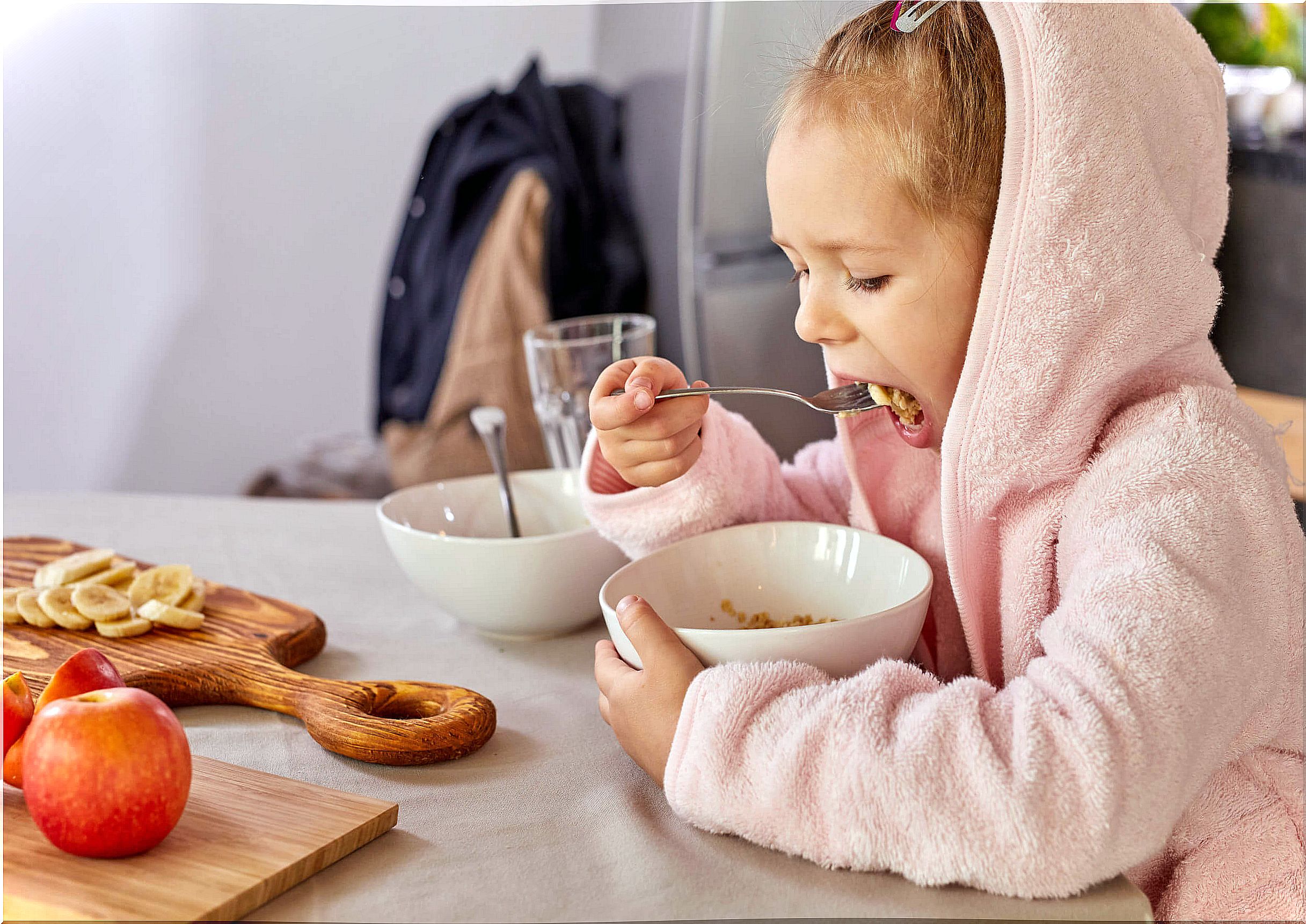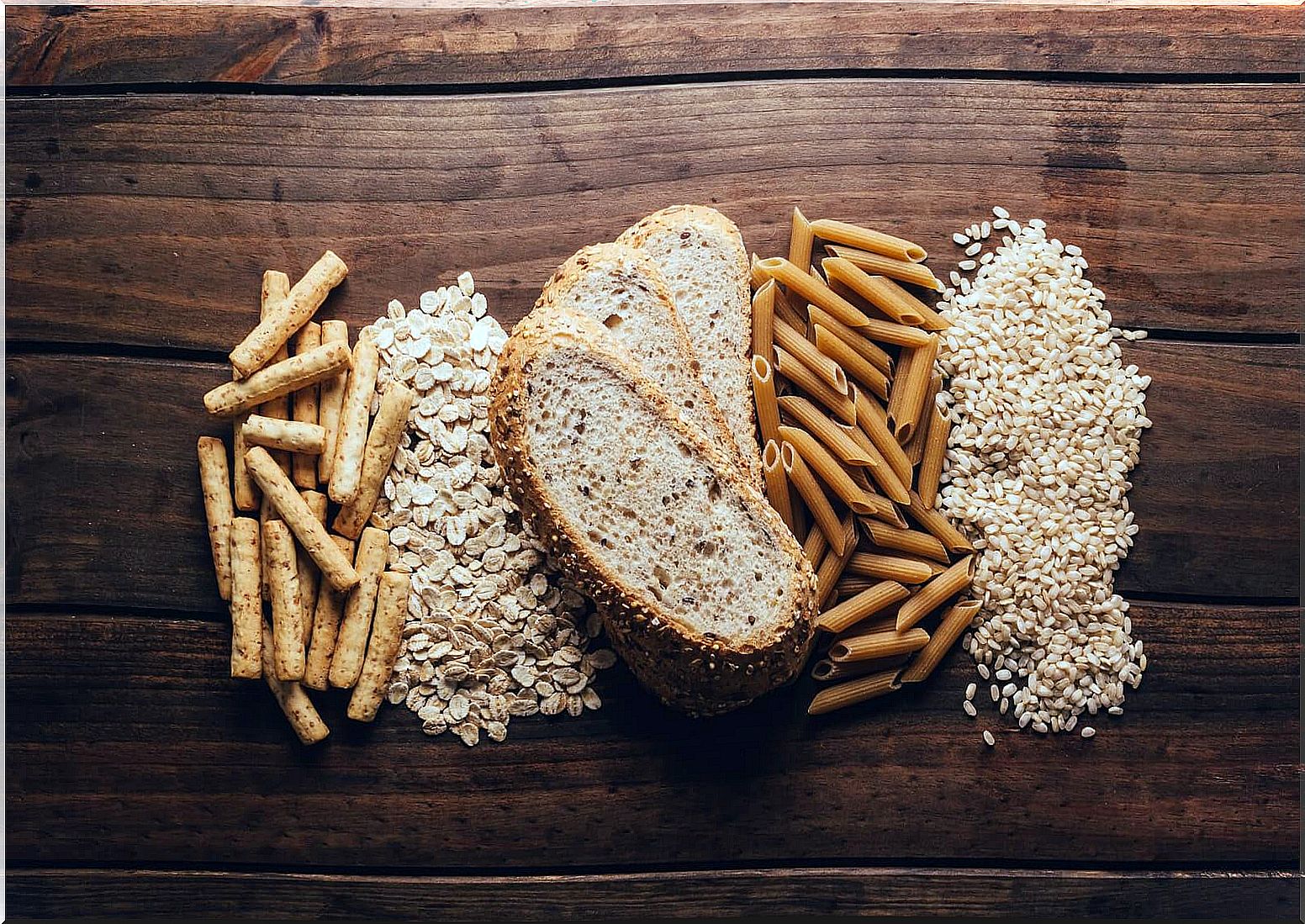4 Constipation Foods In Children

Constipation in children is relatively common. This condition can cause great discomfort and negatively impact the habits of the little ones. Fortunately, it is possible to propose an effective dietary treatment.
However, it is important to note that constipation in children can have very different causes. Sometimes the trigger is an eating problem, but physical inactivity can also have a significant effect. Identifying the cause is essential to proposing an effective solution.
Food against constipation in children
The foods that we will present below have been shown to be useful in the management of constipation in children, managing to increase the frequency and ease of bowel movements.
Oatmeal for the little ones

In the cereals group, the highest quality representative is oats. This food has in its interior a significant amount of soluble fiber, which is able to ferment at the intestinal level, improving the health of the microbiota. In short, it increases the amount of bacteria in the intestine.
According to a study published in Nature Reviews , it is important to increase the presence of fiber in children’s diets. In this way, a larger fecal volume is generated, giving rise to a more efficient intestinal transit. Stimulation of the mechanoreceptors in the tube makes all the difference.
kiwi fruit
Kiwi fruit is the fruit that has the best effects in controlling constipation, along with apples. They are also good representatives of foods rich in fiber, in this case, soluble. In addition to being an energetic substrate for the microbiota, they ensure a more powerful intestinal peristalsis.
Thanks to this last property, waste quickly descends through the digestive tract. If a good water intake is guaranteed, the result is even better.
Yogurt is an essential food in children’s diet
One of the secrets to controlling constipation in children is the consumption of probiotic bacteria. These are mainly found in fermented dairy products such as yogurt and kefir.
Its regular intake can reduce difficulties in evacuation, as stated in a survey published in the European Journal of Pediatrics . However, it is important to choose yogurt correctly. Many of them concentrate added sugars in excessive amounts, so they are not recommended for health.
Whole grains
When choosing products with a high carbohydrate content, it is good to opt for tubers, legumes or whole grains. The latter stand out for the presence of fibers in their composition, unlike their refined equivalents.
In addition, the low glycemic index carbohydrates they have are slowly absorbed in the intestine. Thus, an efficient management of blood glucose is achieved, avoiding blood glucose peaks that affect the health of the pancreas.
They are useful foods to prevent constipation. The insoluble fiber they contain helps to increase the frequency of bowel movements as well as their consistency.

Physical activity is essential to prevent constipation in children
Not only is it important to improve eating habits, it is also essential to ensure that little ones get regular exercise. In this way, episodes of functional constipation, characterized by an ineffective transit of the fecal bolus through the intestine, are avoided.
The more physically active children are, the less likely they are to suffer from these types of problems. Especially when you are careful with your food. However, if the problem still does not improve, it may be necessary to see your doctor for an accurate diagnosis.
Include food in the diet to prevent constipation in children
With the foods we’ve just mentioned, you’ll ensure your children’s intestinal transit is adequate. If they are included in a varied and balanced diet, the risk of developing chronic constipation will be reduced. However, dietary pattern is not the only important factor.
On certain occasions, there may be a process of intestinal dysbiosis that causes problems in the descent of the fecal bolus. In that case, there may be no other choice but to consider supplementing with some strain of probiotics to correct the problem. However, it is first necessary to consult an expert.









